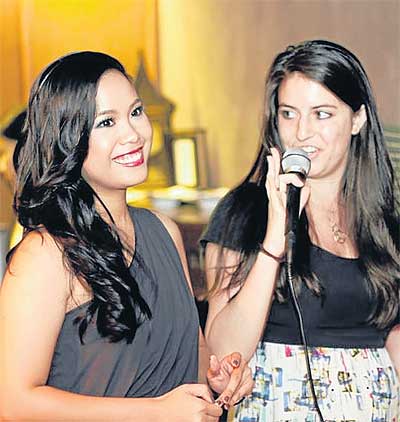FACTBOX

Tanrak "Tanny" Chiengtong and Ali Weiner, both 23, are the co-founders of "Freedom to Walk". The campaign aims to raise awareness of human trafficking around the globe. Tanny graduated from Chulalongkorn University with a degree in law, and Ali graduated from Yale University with degrees in history and political science. Volunteers or "walkers" from around the world will join them in a trek from Bangkok to Myanmar, taking place from Nov 3-18. US Ambassador to Thailand Kristie Kenney will join them on the first day.
Prior to the walk, Tanny and Ali will be organising charity events to raise funds for five organisations working to help victims of human trafficking in five continents. Participants can attempt the entire walk, or take part in as many days as possible. Visit www.freedomtowalk.org if you’re interested in signing up. In the meantime, follow the campaign on Facebook facebook.com/freedomtowalk and Twitter @freedom2walk.
HOW DID THIS CAMPAIGN COME ABOUT?
Tanny: We met while volunteering in a flood relief campaign last year and became good friends. Ali came up with the idea in Jan. We are both into human right issues.
Ali: I came here after graduation to intern with Global Alliance Against Traffic in Women as a postgraduate scholarship. I've been studying human trafficking for about four years now.
HOW WILL WALKING TO MYANMAR RAISE AWARENESS OF HUMAN TRAFFICKING?
T: The victims of human trafficking are deprived of their right to movement. We're trying to send this message by walking because we can do it, but trafficked people can't. They have the right to move but it is taken away from them.
A: We're walking to Myanmar because, one, we think it will be a beautiful walk. Two, it's a symbolic demonstration of many trafficked people in Thailand who are originally from Myanmar. It's a recognition of that.
WHAT DO YOU HOPE TO ACHIEVE WITH THIS CAMPAIGN?
T: What we try to do is raise awareness of what human trafficking is. When people think of it, they usually think of forced prostitution but it actually exists in many industries - textile, agriculture, fishing. During the walk, we will educate our walkers about different issues related to human trafficking. So after the walk, we hope that they will be inspired, informed, and ready to start another project like this back home. It's a worldwide problem.
A: We will also talk about tangible actions that people can take in their communities [to counter the issue]. They can download a smartphone app which tells them what products at supermarkets are made by slave labour. We'll lobby governments to make it a law that there must be transparency in a company's supply chain. We'll give out hotline numbers where people can report human trafficking. It's not a problem unique to Thailand or other Southeast Asian countries and we want to raise awareness of this issue globally.
WHAT KIND OF ACTIVITIES WILL YOU BE ORGANISING LEADING UP TO THE ACTUAL WALK?
T: Our goal is to raise US$100,000. We are going to hold fund-raising events prior to the walk. We just had a charity dinner at Bo.lan and all the proceeds went into the campaign. We're in talks of doing more charity events. During the walk, we will encourage our walkers to raise US$5,000 each through their network of friends and family.
A: We also have localised events because our walkers come from 10 countries. There will be events in different parts of the world - America, Argentina, the UK - leading up to the actual walk. All walkers over there will then come here to join us in late Oct or early Nov. G
